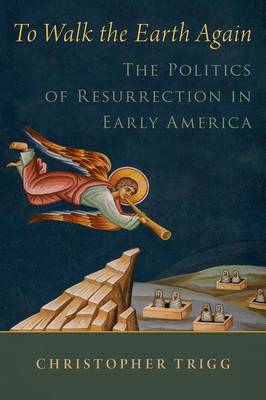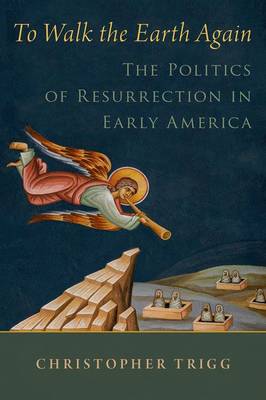
Je cadeautjes zeker op tijd in huis hebben voor de feestdagen? Kom langs in onze winkels en vind het perfecte geschenk!
- Afhalen na 1 uur in een winkel met voorraad
- Gratis thuislevering in België vanaf € 30
- Ruim aanbod met 7 miljoen producten
Je cadeautjes zeker op tijd in huis hebben voor de feestdagen? Kom langs in onze winkels en vind het perfecte geschenk!
- Afhalen na 1 uur in een winkel met voorraad
- Gratis thuislevering in België vanaf € 30
- Ruim aanbod met 7 miljoen producten
Zoeken
€ 169,45
+ 338 punten
Omschrijving
The Protestant conviction that believers would rise again, in bodily form, after death, shaped their attitudes towards personal and religious identity, community, empire, progress, race, and the environment. In To Walk the Earth Again Christopher Trigg explores the political dimension of Anglo-American Protestant writing about the future resurrection of the dead, examining texts written between the seventeenth and mid-nineteenth centuries. By reading histories, epic poetry, funeral sermons, and scientific tracts alongside works of eschatological exegesis, Trigg challenges the conventional scholarly assumption that Protestantism's rejection of purgatory prepared the way for the individualization and secularization of Western attitudes towards mortality. Puritans, Anglicans, Quakers, and radicals looked to resurrection to understand their communities' prospects in the uncertain terrain of colonial America. Their belief that political identities and religious duties did not expire with their mortal bodies but were carried over into the next life shaped their positions on a wide variety of issues, including the limits of ecclesiastical and civil power, the relationship of humanity to the natural world, and the emerging rhetoric of racial difference. In the early national and antebellum periods, secular and Christian reformers drew on the idea of resurrection to imagine how American republicanism might transform society and politics and ameliorate the human form itself. By taking early modern Protestant beliefs seriously, Trigg unfolds new perspectives on their mutually constitutive visions of earthly and resurrected existence.
Specificaties
Betrokkenen
- Auteur(s):
- Uitgeverij:
Inhoud
- Aantal bladzijden:
- 320
- Taal:
- Engels
- Reeks:
Eigenschappen
- Productcode (EAN):
- 9780197652756
- Verschijningsdatum:
- 3/02/2023
- Uitvoering:
- Hardcover
- Formaat:
- Genaaid
- Afmetingen:
- 162 mm x 236 mm
- Gewicht:
- 598 g

Alleen bij Standaard Boekhandel
+ 338 punten op je klantenkaart van Standaard Boekhandel
Beoordelingen
We publiceren alleen reviews die voldoen aan de voorwaarden voor reviews. Bekijk onze voorwaarden voor reviews.









